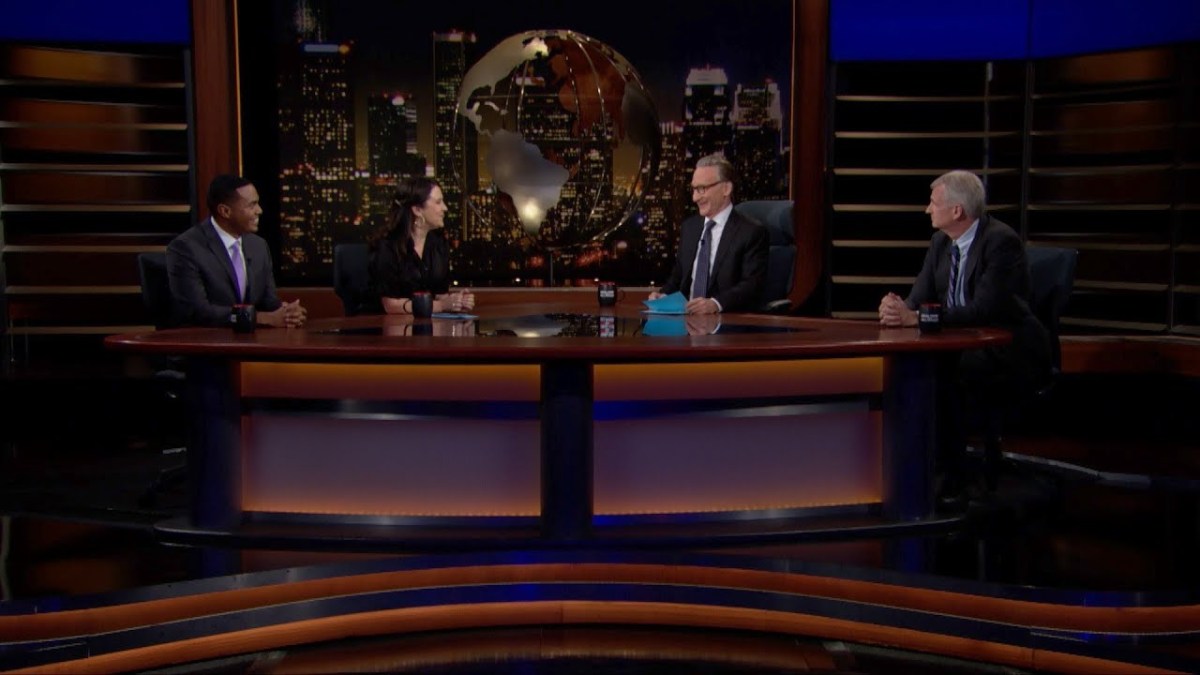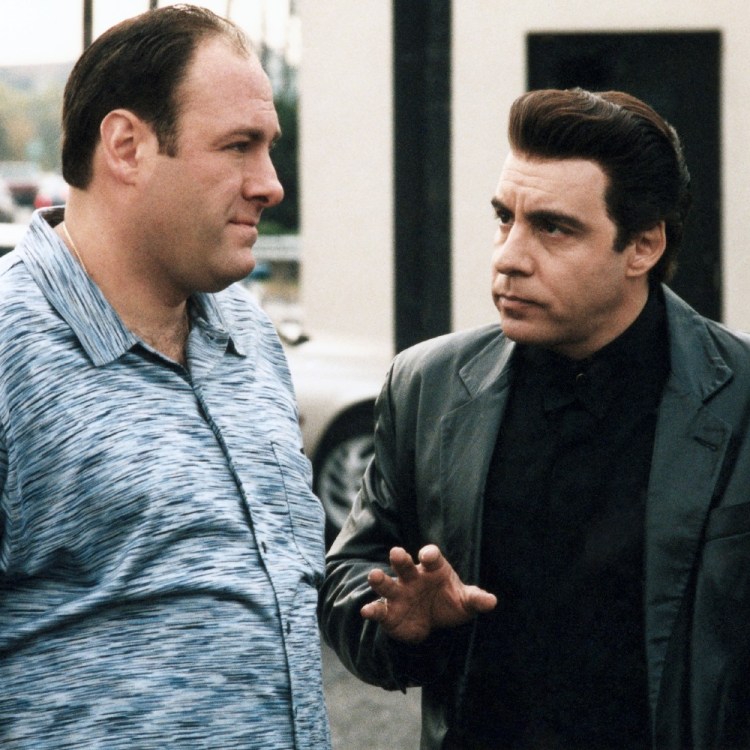In the lead-up to the 20th season of Real Time With Bill Maher, Maher spoke with Deadline about what this season had in store — and shared his frustrations about pandemic life. “I’m over Covid,” he said in the interview. “I was never scared of it. I was always scared of the reaction to it, and as this has played out that only proved to be more true for me.”
It was a sentiment he echoed in the opening monologue, which found him pondering the things that had changed since he was last on the air. This included his birthday, which had been the day before. “I don’t see myself becoming older,” Maher said. “I see myself becoming a milder variant.” Maher went on to note that the episode was taping on the two-year anniversary of the first COVID-19 case documented in the United States — an unsettling milestone.
“Hopefully we’re getting out of this sh*t soon,” Maher said. “I can’t take it much more.” And then he shifted gears, pointing out that 2022 was also the year in which the film Soylent Green was set. This, he argued, was grounds for optimism. “At least we’re not eating people,” said Maher.
Timothy Snyder, author of On Tyranny, was Maher’s first guest for the night. Maher brought up an alarming statistic: dozens of people who took part in last year’s Capitol breach are now running for office. For Snyder, that wasn’t as alarming as the number of candidates who are running in favor of what’s now known as the Big Lie.
Snyder and Maher went on to discuss the looming 2024 Presidential election, and possible scenarios under which things could play out. To call their conversation “sobering” would be an understatement; Snyder raised concerns over widespread partisan violence and the government effectively ceasing to function.
“I hope we’re all being too pessimistic,” Maher said as the interview ended. But both men seemed especially concerned about the future — and the idea that what they described as a cult of personality around Donald Trump would eventually transfer to Trump’s children.
Joining Maher for the evening’s discussion were Representative Ritchie Torres and Honestly host Bari Weiss. “The Millennials are here with me!” Maher said. And his first question for them focused on what he called a “reset” on COVID-19 and included mention of the U.K. easing many of its pandemic regulations. Should the United States do the same?
Torres argued that the government’s response here was already becoming more moderate, albeit in a more gradual manner. Weiss, on the other hand, said simply, “I’m done.;” She went on to say that younger Americans would remember this period as “a catastrophic moral crime.”
Torres pushed back on this; as a New Yorker, he cited the impact the pandemic had on New York City in early 2020. “I reject the notion that the response to COVID has been worse than the disease itself,” he said. It’s worth mentioning here that both Weiss and Torres got positive reactions from the audience — which might help explain why policies on where we, as a nation, go from here can be so difficult to figure out.
The conversation shifted from there to talk of crime, and whether progressive district attorneys were to blame. Torres argued that this wasn’t the case, noting that “[w]e tend to gravitate towards the theories that confirm our own ideological biases.” His explanation, then, had to do with gun ownership — both legal and illicit — increasing, and thus gun violence increasing as a result.
(It’s worth mentioning here that, at the halfway point in the panel discussion, InsideHook’s article about cocaine-addicted dogs at the Playboy mansion came up. And now it’s being covered in this recap, because everything comes full circle.)
Unsurprisingly, Maher brought the discussion around to cancel culture — which began with an awkward exchange in which he asked Torres for his opinion on a mild controversy surrounding the recent film adaptation of West Side Story, which Torres seemed entirely unaware of. (Which seems fine, honestly; after all, he is a member of Congress, and has more important things to focus his attention on.)
Torres did pivot from there to a point about cancel culture having a much more alarming right-wing component, which is to say that Republicans pushing back against Donald Trump’s narrative of the 2020 election can be “canceled” far more thoroughly than, say, a celebrity drawing criticism from some on the left.
“No one ever got canceled faster or harder than Colin Kapernick,” Maher said. “That was a right-wing cancellation. You’re right; there are ‘snowflakes’ on both sides.”
New Rules found Maher invoking Antonio Brown’s exit from Tampa Bay and the Louisiana Senate candidate smoking weed in his campaign ad. The bulk of the segment, though, focused on President Biden’s first year in office, and the public’s lukewarm reaction to it despite — as Maher persuasively argued — a host of genuine achievements. At the heart of this, Maher noted, is the fact that Biden lacks die-hard supporters. He dubbed Biden as the leader of “a coalition of the unenthused.”
How best to rectify this situation? Maher’s argument, based on Republicans’ willingness to do nearly anything that isn’t explicitly prohibited by law, was simple: Joe Biden should marry Barack Obama, paving the way for Obama’s return to the White House. Maher has been invoking the movie Gus, about a field goal-kicking mule, frequently over the last few years. This, then, could signify that “Democrats can play by Gus rules, too.”
This season also marks the return of Overtime, in which Snyder joined the panel for further discussion. “We haven’t done this in a while,” Maher said. “It’s coming back to me.” President Biden’s popularity and media coverage were the subject of discussion, with Torres making the case for Biden’s accomplishments.
Weiss pointed to Glenn Youngkin’s win in Virginia as a sign of where swing voters currently were, and Snyder argued that the pandemic had affected Biden’s popularity, along with the laws he had passed and hadn’t passed. “If the Democrats had two more Senators,” Snyder said, “we’d be living in a transformed country, and I think Biden would be a much more popular president.”
It was a brief but nuanced discussion, and the presence of Snyder in the group shifted the dynamic in interesting ways. And it made for a promising start to this latest season of Real Time.
Thanks for reading InsideHook. Sign up for our daily newsletter and be in the know.


















